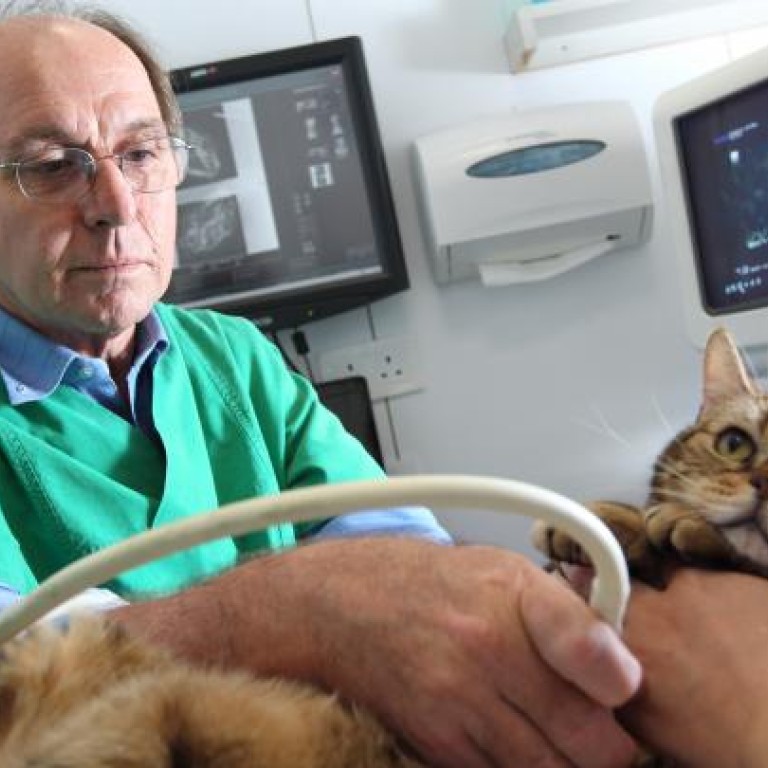
World experts back plans for city veterinarian school
Facility would benefit whole of Asia, helping to fight animal-related diseases and boosting food safety in the city, specialists tell HK workshop
Four leading world figures in the education of veterinarians have backed plans to open a school in Hong Kong.

The four specialists were guest speakers at the Animal Health Workshop: Veterinary Education, organised by the Agriculture, Fisheries & Conservation Department at the Museum of History.
They were Professor Michael Kotlikoff, dean of Cornell College of Veterinary Medicine in New York; Professor Tim Carpenter, director of the EpiCentre , Massey University School of Veterinary Medicine, in Palmerston, New Zealand; Professor Rick Speare, director of the Anton Breini Centre for Public Health and Medicine in Queensland, Australia; and Katharina Staerk, a professor of veterinary public health policy at the Royal Veterinary College in London.
City University wants to establish Hong Kong's first veterinary school, including a training farm, hospital and laboratory, in association with Cornell College, with construction to begin next year.
The university submitted a new proposal to the University Grants Committee on December 10. The government has assembled a task force to look into the viability of the venture.
Many of the city's 649 registered vets are graduates of Australian schools, followed by Taiwan and Britain.
"A school [in HK] would train students and postgraduates, conduct research, and carry out vital surveillance in this area," Kotlikoff said. "Very little of these elements exist in Asia, let alone Hong Kong.
"The school could also work with both veterinarian and medical schools in China."
Another important area of research the school would help address is food safety.
Professor Staerk said it was essential Hong Kong had a strong system in place given the city imported nearly all its food. Vets could help assess the risks and assist officials in making a decision on how to manage these potential dangers and protect the health of consumers.
The shortage of veterinarian comes at a time when the World Health Organisation warned of a mounting threat to humans from animal-related diseases.
The WHO warned recently that 70 per cent of emerging diseases were animal-related.
Professor Speare - a medical doctor and a veterinarian - emphasised the importance of collaboration between the two professions.
"It's absolutely critical. There would be huge benefits if the two worked very closely and the creation of a veterinary school in Hong Kong would definitely help facilitate that," he said.
"This initiative would raise the status here so that the two professions could work equally on a variety of specific areas."
The Men Don't Get It
Veterinary medicine, it appears, is a woman's thing - nearly eight of 10 of those working in the field worldwide are women.
Specialists say women have a much higher pass rate than men in entrance exams for veterinary colleges.
"[Women] are just more focused and intelligent at this stage [in their lives] - it's as simple as that. In my experience, they're also less into making money and gaining status, and more interested in doing some good," said Professor Rick Speare, the director of the Anton Breini Centre for Public Health and Medicine.
"They have a more altruistic outlook on what they want to achieve in their career, and they are much more likely to move into an area that will benefit the population, rather than to do the job for a big wage."
While there are no official figures for the gender ratio of Hong Kong veterinarians, the Society for the Prevention of Cruelty to Animals employs more than 20 veterinary surgeons, most of whom are women.

